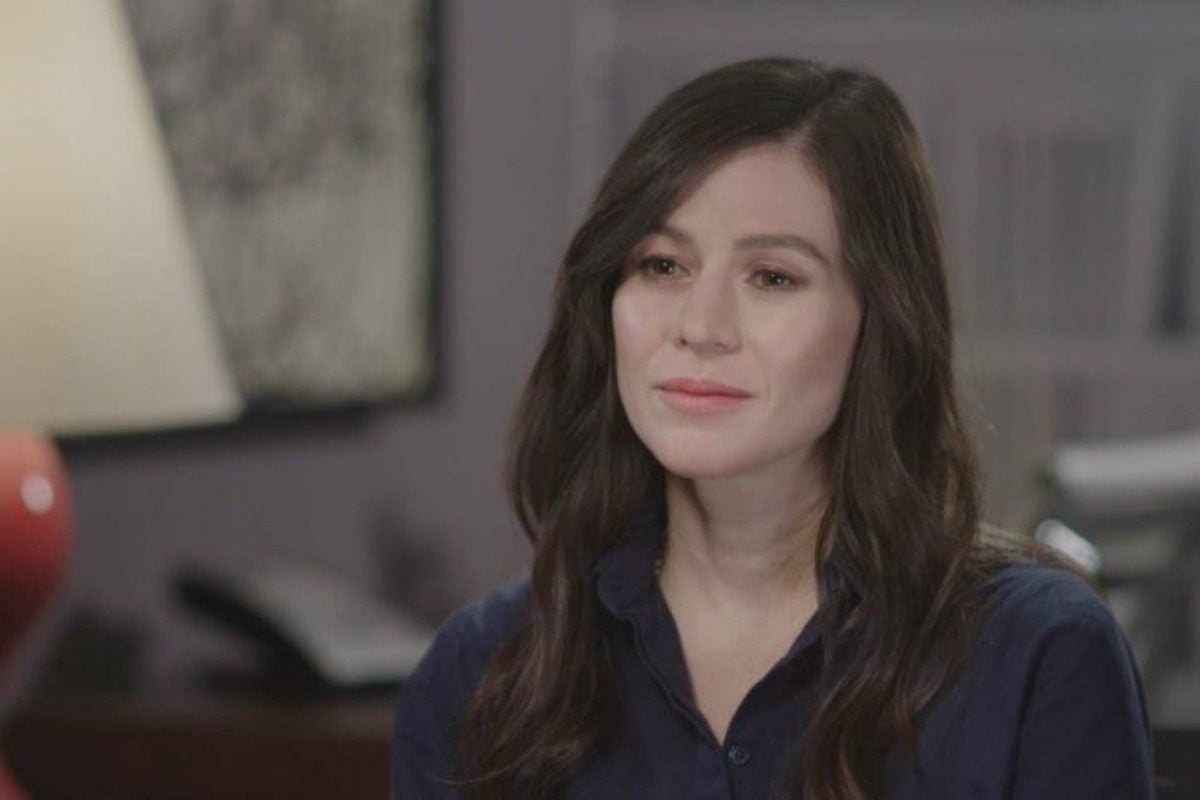
Last night, the nation watched transfixed as Orange is the New Black actress Yael Stone described, in arguably the most eloquent and nuanced manner we’ve heard, the inner complexities of consent in the workplace.
Sexual harassment in the workplace is an issue which has been thrust into the limelight through the #MeToo movement, but one which many, including Yael in her formative years as she admits, still find difficult to navigate.
Her story, told on ABC’s 7.30 with Leigh Sales, follows a working relationship she had eight years ago with prolific actor Geoffrey Rush, whom she played opposite in an Australian theatre production of The Diary Of A Madman.
Throughout the interview, she alleged Geoffrey Rush exposed himself to her backstage, attempted to spy on her while she was showering and sent her inappropriate text messages.
Speaking to Leigh Sales on ABC’s 7.30, Stone explained how Rush allegedly entered the shared dressing room.
“I was sitting at the mirrors and he came in from the shower holding his towel and he was naked and he danced around in front of me with his penis out,” she said.
She also said he used a small mirror to spy on her in the shower.
But while the allegations were serious, and the internalised impacts of his actions have no doubt played on Yael’s mind for almost a decade, those watching at home were moved by how perfectly one woman could describe something many of us have experienced before.
When you’re a young 25 year old actor starting out in this industry you just simply don’t have the skills to advocate for yourself and appreciate complicated boundaries. You rely on older, more experienced actors to help and guide you. Not to utterly abuse that power. #abc730
— Eleanor Howlett (@TheSassyRed) December 17, 2018

Top Comments
She is quite amazing. Her analysis of the dysfunctional relationship she endured was so thoughtful and respectful to all. We have indeed all met those successful older men with conflated egos and boundary issues. They remain a management challenge for young women
This is so indicative of so many instances of sexual and other harrassment I've endured in workplaces over the years. Where I've tried to be really careful about how I've responded to situations that have made me terribly uncomfortable, but felt like I had to laugh it off or make light of it because I didn't know how to react, or thought it was better to just 'take a joke' or play along. When the person in question has been my boss and I don't want to get fired (or worse) and also don't want others to think that they have to tiptoe around me.
The one time I did report serious sexual harrassment in a workplace (groped on many occasions, verbally harrassed, stared at, was emailed a photoshopped picture of myself where my head was on a woman's body who was being fucked by a dog) I was fired the next day. Since I was in a temp job they had every right to do that, it was in my contract (that contracts can be terminated at any time with one hour's notice), but goodness me it left a sour taste in my mouth.
That is horrifying zepgirl. I hope your harasser has had his behaviour reigned in by someone in a position to do so now. Or been hit by a big ole karma bus.
Or just a regular bus...
Yeah, there were multiple harrassers. That's why it was so much easier to get rid of me, just one person, rather than the 15-20 random men who did this on the worksite I was on.